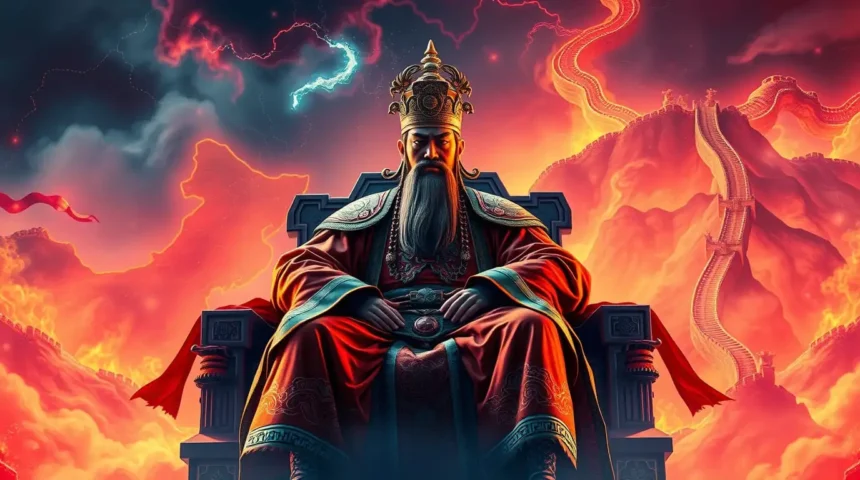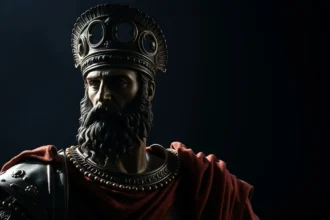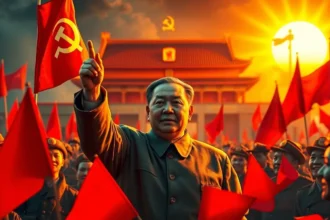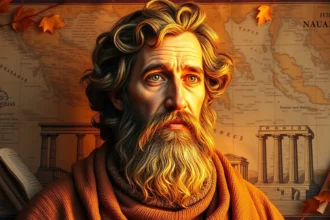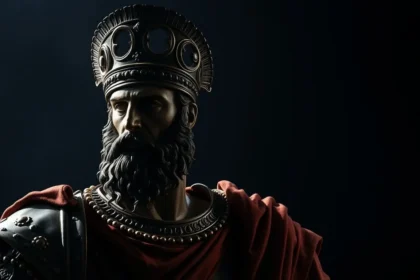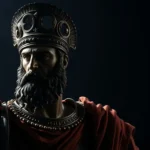Qin Shi Huang, the first emperor of a unified China, remains one of the most influential figures in Chinese history. His reign marked a turning point that shaped China’s cultural, political, and geographical future. Born Ying Zheng in 259 BCE, Qin Shi Huang rose to prominence through ambition, strategic vision, and an unrelenting desire for control and unity. This blog explores his life, achievements, and the personal and external factors that propelled him toward self-discovery and the historical legacy he left behind.
A leader is best when people barely know he exists; when his work is done, his aim fulfilled, they will say: We did it ourselves.
Sun Tzu
Early Life and Rise to Power
Born in the State of Qin during the Warring States period, Ying Zheng was the son of King Zhuangxiang of Qin. Despite his royal lineage, his ascent to power was fraught with challenges. At just 13 years old, Ying Zheng became king after his father’s untimely death. Surrounded by political intrigue, he had to navigate an environment rife with conspiracies and power struggles.
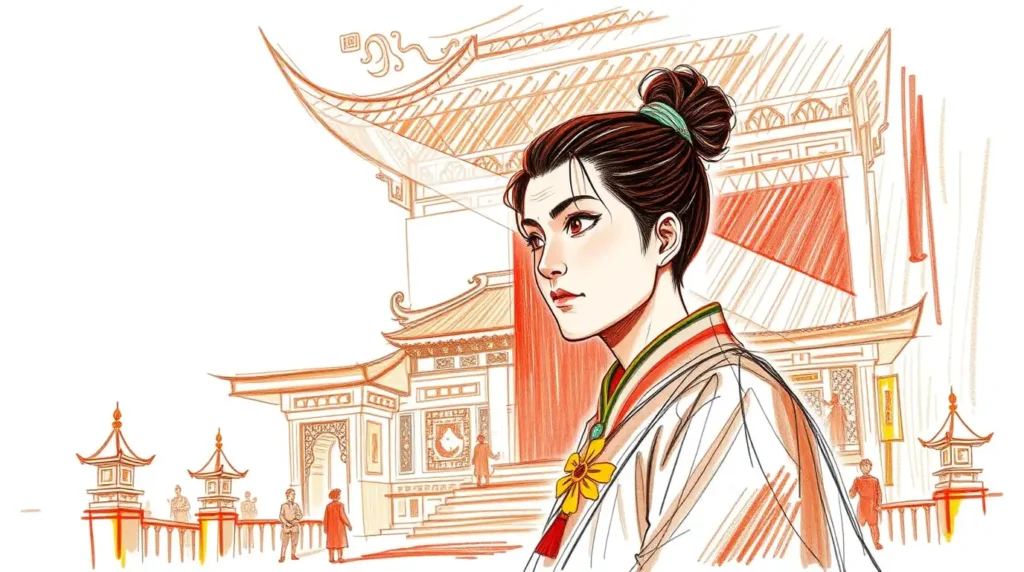
A key factor in his rise was his reliance on capable advisors, particularly Lü Buwei, his regent and mentor. However, as Ying Zheng matured, he began to assert his authority, consolidating power and removing those who sought to manipulate him. His early experiences with betrayal and opposition likely influenced his later approach to leadership, which was marked by an unwavering focus on control and centralization.
The Unification of China
One of Qin Shi Huang’s most significant achievements was the unification of China in 221 BCE. For centuries, the Warring States period had seen constant conflict among rival states. Through a combination of military prowess, political strategy, and sheer determination, Qin Shi Huang succeeded where others had failed.
- Military Innovations:
Qin Shi Huang’s state employed advanced weaponry, including iron swords and crossbows, and developed effective siege tactics. His military campaigns were led by brilliant generals like Wang Jian, who executed strategies that dismantled enemy states systematically. - Administrative Reforms:
Central to unification was his ability to organize the conquered territories. He abolished the feudal system, replacing it with a centralized bureaucracy. This ensured direct control over all regions, preventing local warlords from regaining power. - Legalism as State Philosophy:
Qin Shi Huang was heavily influenced by Legalism, a philosophy emphasizing strict laws and harsh punishments. This ideology guided his governance and played a crucial role in maintaining order across the newly unified empire.
The unification of China was not merely a military feat but also a cultural and administrative revolution. By standardizing systems of measurement, currency, and writing, Qin Shi Huang laid the groundwork for a cohesive Chinese identity.
Monumental Achievements
Qin Shi Huang’s reign is synonymous with monumental projects that showcased his vision and determination. These endeavors not only reinforced his authority but also left a lasting legacy.
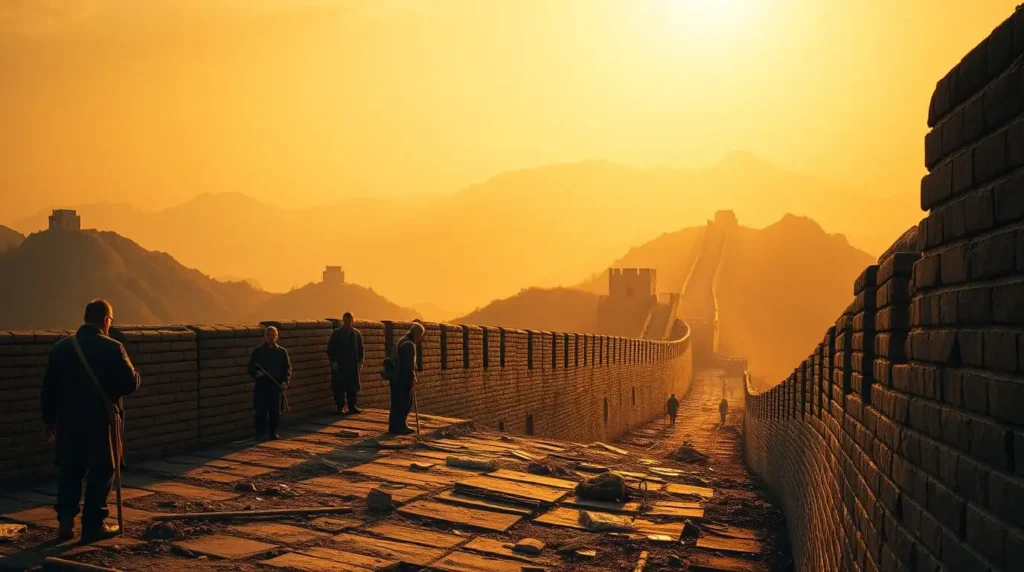
- The Great Wall of China:
One of his most famous projects was the construction of the Great Wall, a massive defensive structure designed to protect against northern invaders. While earlier walls had been built by individual states, Qin Shi Huang ordered their unification and expansion, creating a formidable barrier. - The Terracotta Army:
Discovered in 1974, the Terracotta Army is a testament to Qin Shi Huang’s grand vision and belief in the afterlife. The thousands of life-sized clay soldiers, horses, and chariots were buried with him to guard his tomb and ensure his power in the next world. - Infrastructure Development:
Qin Shi Huang initiated massive infrastructure projects, including roads and canals, to facilitate trade, military movement, and communication across the empire. These advancements enhanced connectivity and strengthened the centralized state.
Challenges and Controversies
Despite his accomplishments, Qin Shi Huang’s rule was not without controversy. His authoritarian methods and unyielding pursuit of control often led to widespread resentment.
He who conquers others is strong; he who conquers himself is mighty.
Laozi
- Censorship and Intellectual Suppression:
To consolidate power and ensure ideological conformity, Qin Shi Huang ordered the infamous burning of books and execution of scholars. Works that contradicted Legalist principles or promoted dissent were destroyed, stifling intellectual diversity. - Harsh Taxation and Forced Labor:
The emperor’s ambitious projects demanded immense resources and manpower. Peasants and laborers were subjected to heavy taxation and forced labor, leading to widespread suffering and discontent. - Paranoia and Obsession with Immortality:
As he aged, Qin Shi Huang became increasingly obsessed with immortality. He sought elixirs and consulted alchemists in his quest for eternal life, which ultimately led to his death in 210 BCE due to mercury poisoning.
Self-Discovery and Personal Evolution
Qin Shi Huang’s life was a journey of self-discovery shaped by his ambition and the challenges he faced. Several key factors contributed to his evolution as a leader and visionary:
- Strategic Alliances and Mentorship:
In his youth, Qin Shi Huang relied on advisors and mentors who helped shape his political strategies. However, as he grew older, he learned to rely on his instincts, asserting his authority and independence. - Confrontation with Mortality:
His obsession with immortality reflects his fear of losing control and the finite nature of human life. While this pursuit ultimately led to his demise, it also spurred some of his most ambitious projects, as he sought to leave an eternal legacy. - Commitment to Unity:
Qin Shi Huang’s vision for a unified China was driven by his belief in order and stability. This commitment defined his reign and motivated his reforms, even in the face of resistance and hardship.
Legacy and Historical Impact
Qin Shi Huang’s legacy is multifaceted, encompassing both monumental achievements and contentious policies. His unification of China laid the foundation for one of the world’s oldest continuous civilizations. The centralized administration, standardized systems, and infrastructure he established became enduring features of Chinese governance.
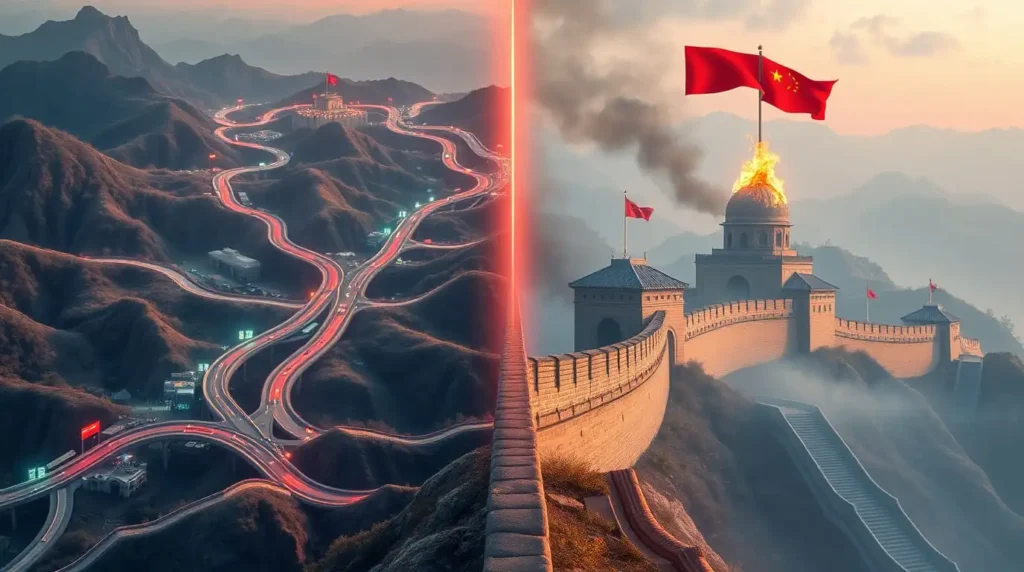
However, his harsh methods also serve as a cautionary tale about the costs of authoritarian rule. His dynasty, the Qin, collapsed shortly after his death, as resentment toward his policies boiled over into rebellion. Nevertheless, his impact on Chinese history is undeniable.
Lessons from Qin Shi Huang’s Life
Qin Shi Huang’s story offers valuable lessons about ambition, resilience, and the complexities of leadership:
- Vision and Determination:
His ability to envision a unified China and work relentlessly toward that goal underscores the power of determination. - The Balance of Power and Compassion:
While his authority brought order, his lack of empathy and heavy-handed rule ultimately alienated his people. Successful leadership requires balancing strength with humanity. - Legacy Beyond Mortality:
Qin Shi Huang’s quest for immortality highlights the human desire to leave a lasting impact. His story reminds us that true immortality lies in the influence we have on the world.
Breaking Down the Barrier
Qin Shi Huang remains a towering figure in history, embodying both the heights of achievement and the pitfalls of absolute power. His reign unified China, set the stage for its cultural and political development, and left an indelible mark on the world. Through his life, we see the interplay of ambition, self-discovery, and the drive to achieve greatness. While his methods may be debated, his vision for a unified and enduring China continues to inspire and influence to this day.
Additional Resources
Here are additional resources with hyperlinks for easy exploration of Qin Shi Huang, his achievements, and his influence on Chinese history:
Books and Biographies
- The First Emperor of China by Jonathan Clements
A detailed biography that explores Qin Shi Huang’s life, achievements, and the historical significance of his reign. - Qin Shi Huang: The Man Who Unified China by Edward Burman
A compelling narrative about the first emperor’s rise to power and his ambitious legacy. - The Terracotta Army: China’s First Emperor and the Birth of a Nation by John Man
A fascinating account of the Terracotta Army and its connection to Qin Shi Huang’s reign.
Online Articles and Encyclopedias
- Stanford Encyclopedia of Philosophy: Qin Shi Huang
An academic perspective on Qin Shi Huang’s political strategies and philosophical context. - Ancient History Encyclopedia: Qin Shi Huang
A comprehensive overview of Qin Shi Huang’s life and achievements. - China Highlights: The Life and Legacy of Qin Shi Huang
A concise summary of Qin Shi Huang’s key accomplishments and historical significance. - National Geographic: Secrets of the First Emperor of China
A look into Qin Shi Huang’s legacy and the mysteries surrounding his tomb.
Documentaries and Videos
- The First Emperor of China
A documentary exploring the life and impact of Qin Shi Huang, available on YouTube. - Secrets of the Terracotta Warriors
A PBS documentary delving into the creation and purpose of the Terracotta Army. - BBC Documentary: China’s Great Wall and the First Emperor
Examines the construction of the Great Wall and Qin Shi Huang’s vision for defense and unity.
Free Online Texts and Translations
- Records of the Grand Historian by Sima Qian (Translated by Burton Watson)
A historical account of Qin Shi Huang’s reign, written by China’s greatest historian. - The Art of War by Sun Tzu (Translated by Lionel Giles)
Though predating Qin Shi Huang, this treatise influenced military strategies during his campaigns.
Academic Articles and Journals
- JSTOR: Qin Shi Huang and the Foundations of Chinese Unity
Access scholarly articles analyzing Qin Shi Huang’s strategies and their lasting impact. - Project MUSE: The Qin Dynasty’s Legacy
Articles focusing on the political and cultural contributions of Qin Shi Huang’s reign. - Academia.edu: The First Emperor’s Quest for Immortality
Research papers discussing Qin Shi Huang’s obsession with immortality and its implications.
Cultural and Historical Context
- China’s Warring States Period
Explore the turbulent era that set the stage for Qin Shi Huang’s rise to power. - The Qin Dynasty: A Historical Overview
Learn about the dynasty Qin Shi Huang founded and its influence on Chinese history. - The Great Wall of China: History and Construction
A deep dive into the origins and evolution of the Great Wall.
Interactive Resources
- Digital Atlas of Ancient China
A map-based exploration of China during Qin Shi Huang’s time. - Interactive Timeline: The Qin Dynasty
Explore key events and milestones during Qin Shi Huang’s reign. - The Terracotta Warriors: Virtual Tour
Take a virtual tour of the British Museum’s Terracotta Army exhibition. - Chinese History Online: The Qin Dynasty
A rich resource for understanding the cultural and historical context of Qin Shi Huang’s reign.
These resources provide diverse insights and tools for delving deeper into Qin Shi Huang’s life, accomplishments, and enduring influence on Chinese history.
Must Read: Niccolò Machiavelli


